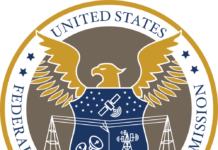
(By Alec Drake) As a sales manager, I appreciated the value of curiosity in building relationships with prospects and coaching my team. Curiosity is an essential aspect of human nature that drives us to explore, learn, and grow. Whether seeking knowledge about the world around us or trying to understand other people’s thoughts and emotions, curiosity plays a vital role in our personal and professional development.
What Fuels Curiosity?
Curiosity is not just a random inclination but a natural function of our brain divided into two areas: epistemic and empathic. The epistemic refers to the desire to eliminate information gaps and learn new things, while the empathic is the urge to understand what others think and feel. These two areas combine to fuel our curiosity and enable us to understand ourselves and the world around us.
External and Internal Forces
External forces, the expectation to learn in school or our work environment, push us to acquire new knowledge and skills. These external drivers hold us accountable for adding fresh understanding to our databanks, which are instrumental in our personal and professional growth.
Internal forces are more innate and start with our brain’s discomfort when we lack specific knowledge. Our brain’s reward circuitry kicks in when we learn, and dopamine is released, which encourages further learning. This internal drive is essential because it motivates us to seek knowledge and experiences that enrich our lives and contribute to our development.
The Path to Strengthen Curiosity
Britannica says one of the best ways to improve curiosity is to “Teach and Be Taught.” As someone drawn to reading history, I appreciate the value of learning from the past and looking for lessons for the future. Although I didn’t become a history teacher as planned after high school, I did spend decades coaching and teaching sales teams. Being taught while teaching through curiosity was a cornerstone of my success.
Teaching taught me to be involved, make a difference, and use stories to connect with my team. I often reminded my team to “Learn by doing, not by viewing,” meaning they must act and not be on the sidelines. Sharing my stories was an effective way to teach and help struggling team members while learning more about my team to become a better manager.
The Curious Advantage In Sales
In sales, curiosity can be a significant advantage. A solid customer needs analysis is the first step in the sales process; adding your inner curiosity brings more energy to the process and sets you apart from other salespeople. Prospects can quickly recognize genuine interest versus the sequential and predictable list of questions asked by less curious salespeople. Asking questions is just the first step; listening is crucial. Clarifying and confirming works well to support better understanding and to get your next appointment.
Staying Curious
Staying aware of the power of curiosity encourages us to keep learning consciously or by expectation and appreciate the enormous benefits in our lives. Cultivating curiosity takes time and practice, but the rewards are significant. By nurturing our natural drive to explore and understand, we can open doors to new opportunities, deepen our relationships, and enjoy a more fulfilling life.
In conclusion, curiosity is an innate part of who we are as human beings, and it drives our desire to learn and grow personally and professionally. By staying curious and fostering a culture of curiosity, we can tap into our full potential and achieve greater returns on our efforts as sellers and managers.
Alec Drake writes on management and sales improvement strategies. He recently founded “The Radio Invigoration Project” (T.R.I.P.) on LinkedIn and a monthly newsletter, The Sales TRIP; email him at [email protected]. Alec’s previous blog posts are available at Radioink.com/author/adrake






